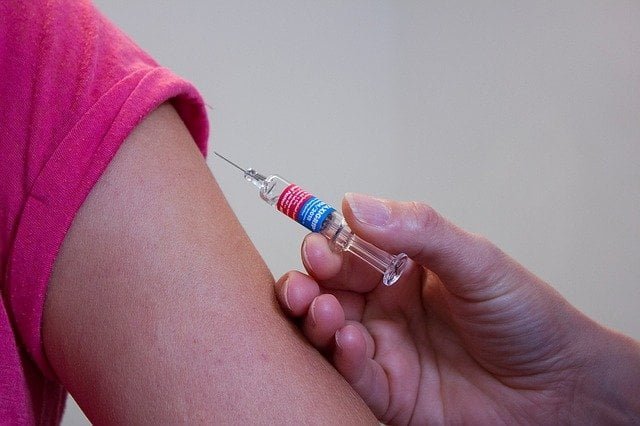
Vaccinations and pregnancy
Vaccinations and pregnancy
During pregnancy, your immune system is naturally weaker than usual. This means that you are more likely to contract certain infections and diseases that can be harmful to you and your growing baby.
Taking a few simple precautions will help reduce the risk that you and your baby may develop these health problems.
Vaccination is a simple and effective way to protect you and your baby from some types of infections. Before becoming pregnant, make sure your vaccinations are up-to-date to protect against diseases that can make you or your unborn baby ill.
Vaccination is the term used to get a vaccine – that is, getting an injection or taking a dose of a vaccine by mouth. Immunization refers to the process of getting vaccinated and immunizing against disease after vaccination.
Learn more about the difference between vaccination and immunization.
As well as routine vaccinations such as tetanus and polio, a pregnant woman should have immunity against hepatitis B, measles, mumps, rubella, chickenpox (varicella), whooping cough (pertussis) and influenza.
All women are encouraged to be vaccinated before pregnancy because some of these vaccinations are not recommended during pregnancy.
However, if you were not able to receive these vaccinations before you became pregnant, you may get the flu, whooping cough (pertussis) during pregnancy and another as soon as possible after your baby is born. All of these vaccines can be given to breastfeeding mothers, and having immunity will reduce the chances of passing on these diseases to your baby.
COVID-19 Vaccines and Pregnancy
It is recommended that pregnant women get the Pfizer (Cominarty) vaccine at any stage of pregnancy.
If you plan to become pregnant, you can also receive the vaccine and do not need to avoid pregnancy or delay pregnancy after vaccination.
Vaccinations before pregnancy
Measles, mumps, and rubella
Rubella infection during pregnancy can cause serious birth defects. Checking your immunity with a blood test before pregnancy and getting a booster vaccine if needed will help protect your unborn baby when you get pregnant. This should be done in consultation with your doctor. It is recommended to wait 4 weeks after receiving this vaccine before trying to get pregnant.
chicken pox (varicella)
Having chickenpox during pregnancy can cause severe illness for you and your unborn baby. A simple blood test can determine if you are immune to this infection. If you are not protected, talk to your doctor about receiving two doses of the vaccine for complete immunity. It is recommended to wait 4 weeks after receiving this vaccine before trying to get pregnant.
hepatitis B
Hepatitis B is a virus infection that can cause long-term damage to the liver. If you are planning to become pregnant, it is important to check whether you need to be vaccinated against hepatitis B.
pneumococcus
Prevention of serious diseases caused by pneumococcal disease is recommended for smokers and people with heart, lung, chronic kidney disease or diabetes.
travel vaccinations
Vaccines are not always recommended for travel to other countries during pregnancy. Find out more about travel and pregnancy.
Safe vaccinations during pregnancy
The flu and whooping cough vaccines are the only vaccines recommended for women during pregnancy. Both vaccines are provided free of charge to pregnant women through the National Immunization Program.
Whooping cough (pertussis)
Whooping cough can cause serious illness and even death in babies younger than 6 months old. It is now recommended that all pregnant women receive one dose of the whooping cough (pertussis) vaccine between 20 and 32 weeks into each pregnancy. The combination of antibodies that travel through the mother’s bloodstream and reduce the mother’s risk of disease makes this an ideal time to give the vaccine. Talk to your doctor or antenatal care provider to make an appointment.
influenza (flu)
Influenza can cause serious illness. The risk of serious complications for pregnant women is up to 5 times higher than normal. For this reason, the flu vaccine is recommended and funded for all pregnant women.
The flu vaccine is safe and can be taken before, during, and after pregnancy. Getting vaccinated every year protects you from new strains of the virus and also reduces the risk of spreading influenza to your child, and children are more likely to develop complications if they get the flu. Getting a flu shot during pregnancy will also provide ongoing protection for your newborn for the first six months after birth.



